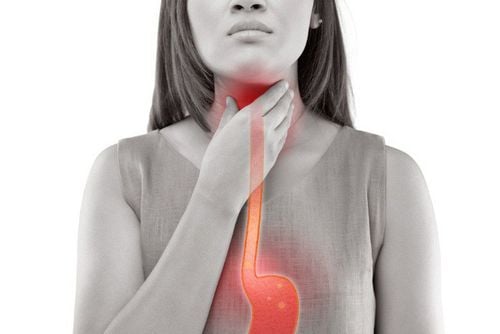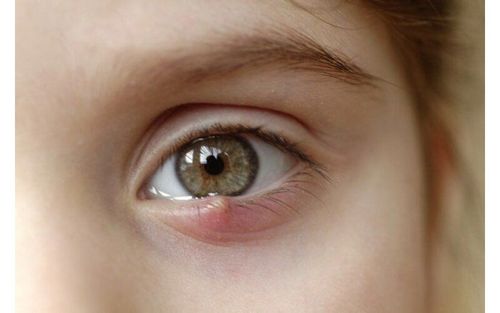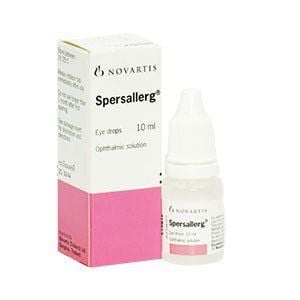Allergic conjunctivitis is an eye disease that many people are susceptible to. The agents that cause this condition often originate from the surrounding environment such as dust, pollen, etc. Equipping yourself with knowledge about how to prevent and treat it, including what foods to avoid when you have allergic conjunctivitis, will help patients speed up the treatment process and recover quickly.
1. What is allergic conjunctivitis?
Conjunctivitis, also known as pink eye, is characterized by congestion of blood vessels in the membrane of the eye, causing the conjunctiva to become red and inflamed. This disease often occurs mainly at the change of seasons, when the weather is humid and uncomfortable.
Allergic conjunctivitis is caused by agents that irritate the thin membrane (conjunctiva) in the eye, causing redness, itching, pain and watery eyes. Allergic conjunctivitis can be caused by dust, pollen, etc. In addition, conjunctivitis can also occur due to other common causes such as viruses, bacteria, physical impact, etc.
Allergic conjunctivitis can cause many difficulties and obstacles to the patient's daily life, however, this is a benign eye disease and can be completely avoided and treated.
2. What foods should you avoid to recover quickly from allergic conjunctivitis?
According to experts, daily diet has a significant impact on the treatment of allergic conjunctivitis. Some foods can make the condition worse if the patient accidentally consumes them every day. So what foods should you avoid when you have allergic conjunctivitis? Let's refer to the following useful advice from an ophthalmologist:
2.1. Avoid eating greasy and spicy foods
According to Oriental medicine, the liver and eyes have a close relationship. When the liver and blood are well-regulated, the eyes will be healthy, on the contrary, if the liver and blood are damaged, the eyes will become dry and blurry. When suffering from eye diseases, typically allergic conjunctivitis, avoiding foods that damage the liver and blood is a top priority as recommended by the doctor. Learning what foods to avoid when you have allergic conjunctivitis will help the patient recover quickly and make the eyes brighter and healthier.
One of the foods that people with allergic conjunctivitis should avoid during the disease is spicy and greasy foods. Some hot foods to avoid are chili, pepper, ginger, onions, etc. This group of foods often has the ability to stimulate tearing, making the symptoms of allergic conjunctivitis worse. Therefore, this is considered a "taboo" food for people with eye problems.
In addition to spicy foods, patients with allergic conjunctivitis should also avoid consuming greasy foods. According to recent research, eating foods high in fat can make the symptoms of conjunctivitis worse. Therefore, you should remember to remove this group of foods from your daily menu during the treatment of allergic conjunctivitis.
Instead of consuming spicy and fatty foods, you should add cool foods that provide vitamins that are good for the eyes such as papaya, oranges, carrots, broccoli, grapefruit, etc.
2.2. Limit the consumption of foods that can easily cause allergies
Many people wonder what foods to avoid when having allergic conjunctivitis to recover quickly? The answer is foods that can easily cause allergies, such as clams, snails, sea fish, shrimp, etc. When you have allergic conjunctivitis, your body will become more sensitive to agents that cause even mild irritation. This irritation can make the inflammation worse, even leading to acute conjunctivitis.
According to the advice of ophthalmologists, people who are in the process of treating allergic conjunctivitis should limit or avoid consuming foods containing a lot of protein and protein that can easily cause allergies such as crab, clams, beef, other seafood, etc. When eating these foods, the body will secrete histamine - an allergen, stimulating inflammation and itching for the patient. Therefore, avoiding these foods is the best way to prevent allergic conjunctivitis from becoming more serious.
2.3. Limit foods rich in sugar and starch
Some studies show that eating foods containing high levels of sugar and starch can worsen the unpleasant symptoms of allergic conjunctivitis. Ideally, patients should replace starchy foods (such as bread, and noodles) with whole grains in their diet to quickly improve the disease.
2.4. Stay away from alcoholic beverages and stimulants
What foods to avoid to quickly cure allergic conjunctivitis is probably a concern for many people. According to experts, alcoholic beverages and stimulants are in the group of foods that patients with allergic conjunctivitis should avoid consuming.
Alcoholic beverages such as beer, and wine; or stimulants such as coffee, drugs, cigarettes, etc. can strongly stimulate the nervous system, seriously affecting the eye's ability to regulate. In addition, these foods also cause reduced vision, and blurred vision and make allergic conjunctivitis symptoms more difficult to treat.
2.5. Seafood - foods to avoid when suffering from allergic conjunctivitis
Some people like to consume seafood such as crab, shrimp, squid, etc. because they contain many nutrients that are beneficial for health, especially minerals and proteins. However, for people with allergic conjunctivitis, consuming this group of foods is not a suitable choice. Seafood is considered one of the common causes of allergies, stimulating the body to produce a lot of histamine, causing eye inflammation, irritation and itching.
3. Other special notes when suffering from allergic conjunctivitis
In addition to finding out what to avoid eating when suffering from allergic conjunctivitis, you need to note the following to quickly relieve the condition and recover quickly:
Avoid rubbing your eyes with your hands because this can accidentally infect bacteria in the damaged eye area, making the inflammation worse.
When removing eye discharge or tears, you should use a clean tissue to gently wipe them, then throw them away in the right place.
Regularly clean your hands with an antiseptic solution or soap.
Wear glasses to avoid eye contact with bright light or dust, etc.
Do not go swimming when you have allergic conjunctivitis because the water in the swimming pool may contain bacteria or impurities that aggravate the symptoms of the disease.
Wash/clean your eyes with saline solution every morning.
Strengthen your eyes' resistance by adding foods rich in vitamin C, such as oranges, guavas, grapefruits, grapes, etc.
Avoid steaming your eyes with tobacco without consulting a doctor, because this method can even make allergic conjunctivitis worse.
You can apply warm water to your eyes with a clean towel to soothe eye irritation.
If allergic conjunctivitis lasts for many days and shows no signs of improvement, even if accompanied by other symptoms such as epithelial ulcers, pus discharge conjunctival hemorrhage, etc., the patient should see a doctor immediately for more appropriate treatment. Delayed treatment can endanger vision and lead to difficult-to-treat eye complications.
In general, allergic conjunctivitis is an eye disease that can be prevented and cured if the patient equips himself with the necessary knowledge about this condition. In particular, carefully understanding what to avoid eating when suffering from allergic conjunctivitis will help the treatment process become easier and more convenient.
Please dial HOTLINE for more information or register for an appointment HERE. Download MyVinmec app to make appointments faster and to manage your bookings easily.













